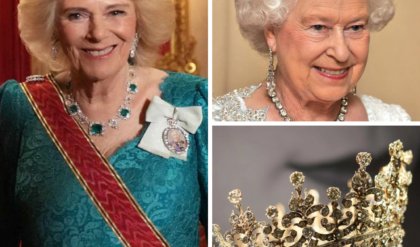Disney’s live-action remake of Snow White and the Seven Dwarfs, released in March 2025 and starring Rachel Zegler as the titular princess, was anticipated to be a triumphant reimagining of the 1937 animated classic. However, the film has been widely regarded as a commercial and critical failure, grossing a mere $43 million domestically and $87 million globally in its opening weekend against a reported budget of at least $350 million. While much of the public discourse has centered on Zegler’s casting and her outspoken comments, professional reviews and industry analyses point to deeper structural and creative issues that contributed to the film’s flop. This article explores five key reasons for the failure of Disney’s Snow White, based on professional critiques, moving beyond the focus on the lead actress.
1. Creative Missteps in Modernizing the Classic
One of the primary reasons for Snow White’s failure lies in its attempt to modernize the classic fairy tale, which resulted in a disjointed narrative that failed to resonate with audiences. The original 1937 film is celebrated for its simplicity, charm, and poetic storytelling, centered on Snow White’s kindness and her romantic journey. The 2025 remake, directed by Marc Webb and written by Erin Cressida Wilson, sought to reframe Snow White as a feminist leader focused on self-discovery and leadership rather than romance. While this shift was intended to align with contemporary values, critics noted that the execution was awkward and lacked cohesion.
Professional reviews, such as those from Variety and CBR, highlighted that the modern updates—such as replacing Prince Charming with a Robin Hood-esque character named Jonathan—felt forced and underdeveloped. The new character, played by Andrew Burnap, was given little screen time and lacked the depth needed to make the altered narrative compelling. Jacobin described the film as a “demoralizing mess,” arguing that the screenplay’s attempts to update the story were “as awkward as ass,” resulting in a plot that neither honored the original’s legacy nor offered a fresh, engaging vision. This creative dissonance alienated both fans of the classic and new audiences seeking a coherent story.

2. Poor CGI and Production Design Choices
Another significant factor in the film’s flop was its reliance on subpar CGI and uninspired production design, which detracted from the fairy-tale magic. The decision to depict the Seven Dwarfs as CGI “magical creatures” rather than casting actors with dwarfism sparked controversy early on, with critics like Peter Dinklage calling the concept “f—ing backwards.” Professional reviews consistently pointed to the CGI dwarves as a weak point, describing them as visually unconvincing and lacking the charm of the original animated characters. The New Yorker noted that the film’s trailer looked “A.I.-generated,” with costumes and makeup appearing cheap and unpolished, further diminishing the film’s visual appeal.
Additionally, the production design was criticized for its garish color palette and clashing aesthetics. Jacobin described the visuals as “eye-searingly ugly,” arguing that only Rachel Zegler’s charisma prevented the film from being “totally unwatchable.” The high budget of $350 million, including costly reshoots, raised expectations for a visually stunning experience, but the final product failed to deliver the enchanting atmosphere that audiences associate with Disney’s fairy tales. These technical shortcomings significantly undermined the film’s ability to captivate viewers.
3. Audience Fatigue with Live-Action Remakes
Disney’s Snow White also suffered from broader audience fatigue with the studio’s relentless stream of live-action remakes. Over the past decade, Disney has produced remakes of classics like The Lion King, Aladdin, Beauty and the Beast, and The Little Mermaid, with varying degrees of success. While some, like Aladdin and The Lion King, grossed over $100 million in their opening weekends, others, such as Dumbo and Mufasa: The Lion King, faced criticism for lacking originality. Snow White arrived at a time when audiences were growing weary of what The Mirror described as “re-hashes of classic films.”
Professional analyses, including comments from movie industry analyst David A. Gross in CinemaBlend, emphasized that Snow White’s failure was not solely due to its progressive elements but rather its inability to offer a compelling reason for its existence. Unlike Maleficent, which reimagined Sleeping Beauty from the villain’s perspective, Snow White struggled to justify its departure from the original while failing to deliver the nostalgic appeal of a faithful adaptation. This lack of a clear creative purpose, combined with mixed reviews (42% on Rotten Tomatoes), made it difficult for the film to attract audiences willing to pay high ticket prices for a mediocre experience.
4. Marketing and Public Relations Missteps
Disney’s marketing strategy and handling of public relations further exacerbated Snow White’s challenges. The film was plagued by controversies from its announcement in 2021, including backlash over Zegler’s casting and her comments about the original film’s “outdated” themes. While Zegler’s remarks were intended to highlight the remake’s modern approach, they were perceived by some fans as dismissive of the 1937 classic, fueling negative sentiment. Variety reported that Disney failed to address these controversies early on, allowing Zegler to “control the narrative” in a way that alienated purists.
The studio’s decision to scale down the film’s premiere to a press-free, photo-only event at the El Capitan Theatre was interpreted as an attempt to minimize scrutiny, but it backfired by signaling a lack of confidence in the project. Vanity Fair noted that this move, coupled with rumors of a feud between Zegler and co-star Gal Gadot, created a perception of disarray. Additionally, the studio’s response to Zegler’s political posts—such as her “free Palestine” tweet and anti-Trump comments—drew further attention to the film’s controversies rather than its merits. These missteps ensured that Snow White remained mired in negative publicity, overshadowing its potential strengths.
5. Mixed Critical Reception and Lack of Cohesive Vision
Finally, the film’s mixed critical reception underscored a lack of cohesive vision, which hindered its ability to connect with audiences. While some reviews praised Zegler’s performance and the film’s lighter tone compared to other Disney remakes, others found fault with its pacing, script, and failure to balance modern updates with the original’s charm. Variety described the film as “frolicsome” but noted that it fell short of the 1937 classic’s poetic resonance. CBR gave the film a 7/10 but criticized its “untight script” and underdeveloped relationships between Snow White, the Evil Queen, and the Dwarfs.
The film’s 42% Rotten Tomatoes score and abysmal 1.5/10 IMDb rating (partly due to review-bombing) reflected a polarized response. The Independent reported that the low IMDb score was influenced by trolls targeting Zegler’s off-screen persona, but even verified critics expressed disappointment in the film’s execution. The lack of a unified vision—evident in the conflicting goals of modernizing the story, appeasing nostalgic fans, and delivering a visually spectacular experience—left Snow White feeling like a compromise that satisfied few.
Conclusion
Disney’s Snow White remake was a high-stakes endeavor that aimed to reimagine a beloved classic for a modern audience. However, its failure cannot be attributed solely to Rachel Zegler, who, despite controversies, received praise for her performance from many critics. Instead, the film’s flop resulted from a combination of creative missteps, poor CGI and production design, audience fatigue with live-action remakes, marketing blunders, and a lack of cohesive vision. These factors, rooted in professional critiques, highlight systemic issues in the film’s production and promotion that overshadowed its potential. As Disney reflects on this $115 million loss, the lessons from Snow White may prompt a reevaluation of how the studio approaches its cherished intellectual properties in an increasingly skeptical market.





